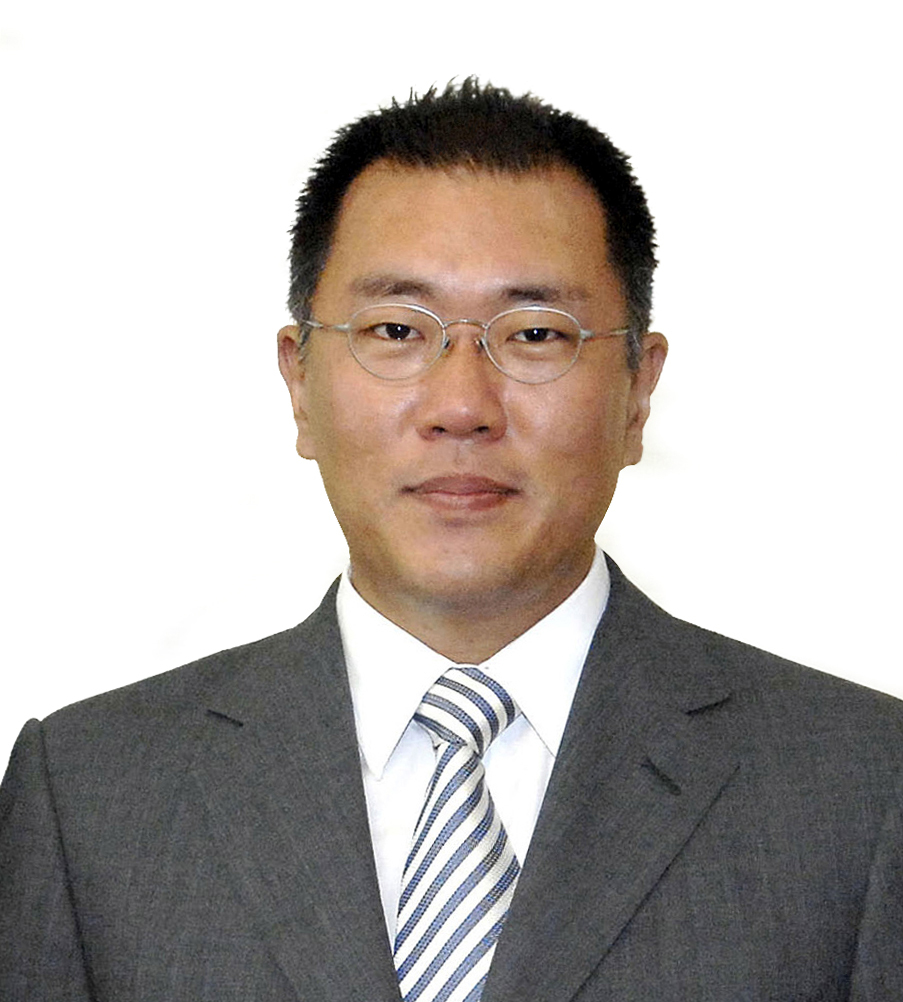Chung Euisun, executive vice chairman of Hyundai Motor Group, said decarbonizing transportation will support the Hydrogen Council’s vision of building a hydrogen-powered society
According to the company on Friday, Chung, who co-chairs the council, said in an interview that it is the responsibility of Hyundai Motor to extend beyond vehicles and invest in the hydrogen supply chain.
“As an innovator and pioneer in hydrogen-powered mobility, Hyundai Motor Group is willingly taking the responsibility and putting much effort into developing and supplying affordable fuel cell electric vehicles to the general public,” Chung said in the interview with the Hydrogen Council, a global advisory body.
 |
Hyundai Motor Group Executive Vice Chairman Chung Euisun (HMG) |
“Hyundai is currently exploring various ways to contribute to enhancing this infrastructure. Last year, Hyundai Motor built the world’s first hydrogen-filling station on legislative premises (National Assembly) in Seoul. The charging station is open for use to the public and taxi drivers,” he added.
Under its “Hydrogen Vision 2030,” Hyundai Motor Group has announced that it will boost annual fuel-cell systems production capacity to 700,000 units by 2030.
The group also vowed to secure FCEV production capacity of 500,000 units per year by 2030, including both passenger and commercial vehicles, in anticipation that demand for global FCEVs will expand to around 2 million units per year within that timeframe.
Chung highlighted that a full transformation into a “hydrogen society” will not happen overnight.
“I believe building hydrogen-powered territories, which many countries are already taking part in, could be a viable stepping stone toward becoming a hydrogen society and doing so will help demonstrate the benefits of hydrogen to the public,” he said.
He said further discussions with international governments are needed to jointly establish hydrogen-powered territories and develop the sector globally.
“With the construction of such territories where major urban functions -- electricity, transportation, heating and cooling -- are powered by hydrogen, the safety and economic feasibility of the energy transition through hydrogen will be easily verified,” he said.
By Kim Da-sol (
ddd@heraldcorp.com)





![[Exclusive] Hyundai Mobis eyes closer ties with BYD](http://res.heraldm.com/phpwas/restmb_idxmake.php?idx=644&simg=/content/image/2024/11/25/20241125050044_0.jpg)
![[Herald Review] 'Gangnam B-Side' combines social realism with masterful suspense, performance](http://res.heraldm.com/phpwas/restmb_idxmake.php?idx=644&simg=/content/image/2024/11/25/20241125050072_0.jpg)

